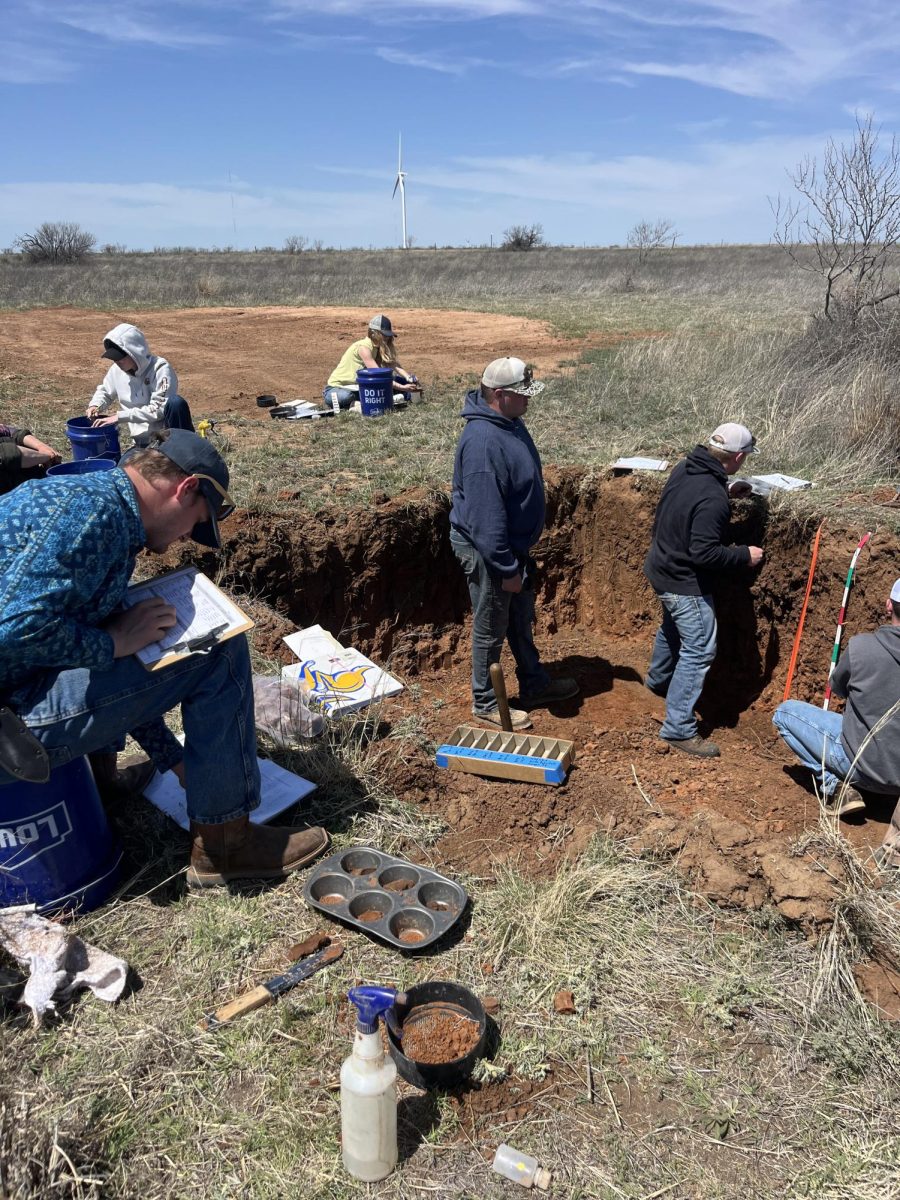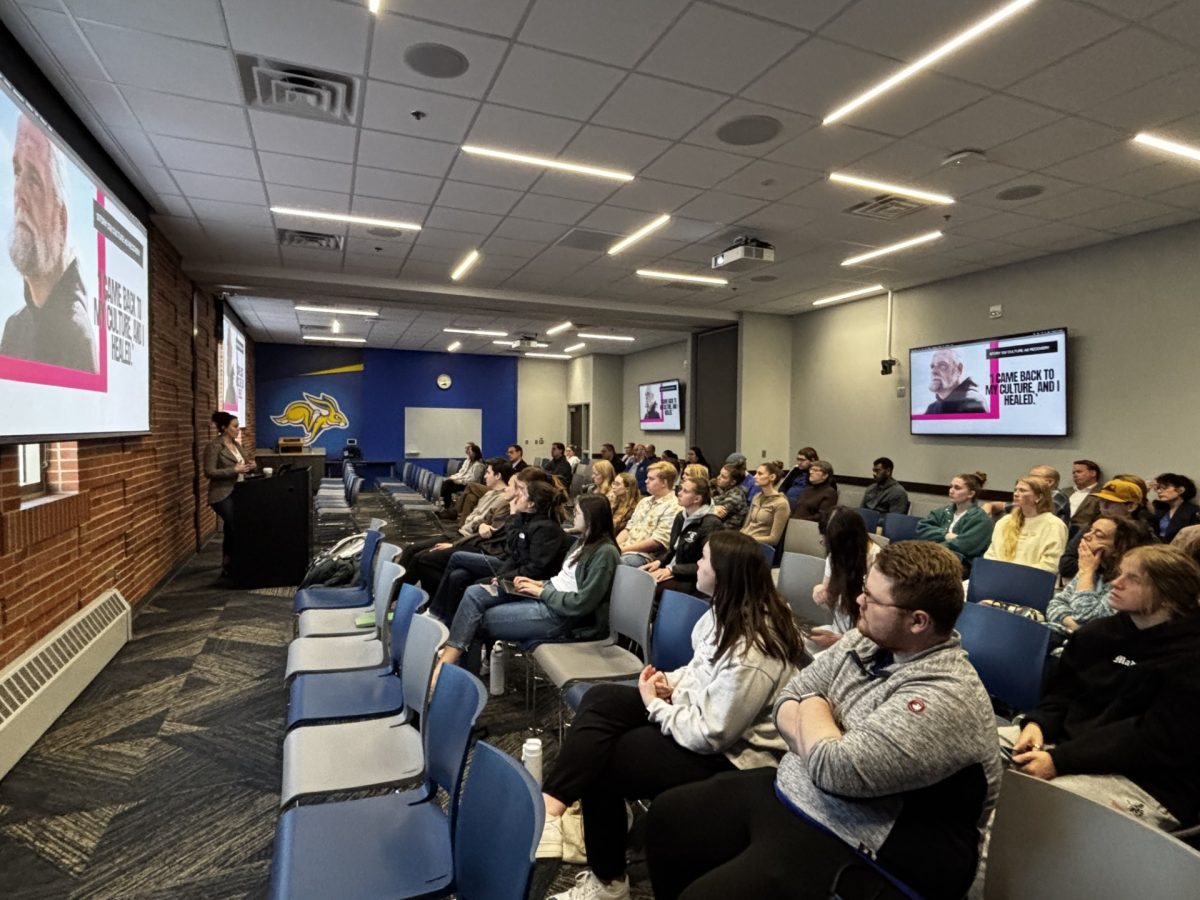The Child and Family Resource Network hosted its first ‘Common-Sense Parenting’ class at Pugsley Hall on Tuesday, Feb. 20.
“It is a series of six classes that will help parents work with their child if they have any discord in their home life,” said Janet Stange, program coordinator and training specialist. “It is your typical behavior that you will view with kids as they grow up and develop.”
The classes are designed to help parents determine why their kids are behaving in a certain manner and aims to teach them about working with their children to bring a positive change.
“A lot of times, kids don’t understand that there are consequences to what they do,” Stange said. “The class helps parents explain the consequences and give consequences that are appropriate to what the behaviors have been.”
The program began in November 2022 and complements another series of classes offered for parents that have kids ages newborn to 3-years-old.
“There was a long period of time where the younger age parenting series was the only parenting that we provided,” said April Flemming, assistant outreach coordinator. “This partnership was available and Janet was able to step in as coordinator and to learn all about it and it aligns with serving families.”
Each week, the classes are laid out to concentrate on a certain aspect. The six-week class builds up on topics such as effective discipline, effective praise, navigating problem behaviors, setting children for success and many more. Upon course completion, certificates are awarded and approved by Court Services and The Department of Social Services.
“With all of our classes and the other parenting series, it is important to our grant funder that we collect pre-knowledge and post-knowledge from [attendees] because we want to make a difference,” Flemming said.
Stange explained that the reason behind scheduling classes one or two weeks apart was to allow parents to apply these theories and knowledge in daily life experiences. She shares how important it is for parents to try working these things with their children.
“It starts right off from the beginning with saying if you don’t have respect for your child, your child won’t have respect for you,” Stange said. “So you need to use your head in a way that you treat your child but you need to use your heart in developing that relationship so you’re going on that journey together.”
Stange further discussed demographics of parents attending these classes; however, the classes are not restricted to just parents, but open to anyone that regularly works with kids of school age.
“A lot of the people that attend the class are parents that are working with kids of ages of five to 16,” Stange said. “The classes would be appropriate for anyone that works with school age kids and at times we have had grandparents that would come in.”
According to Stange, the class currently has five attendees taking the course with an age range of late 20s to late 40s.
“We don’t have really young parents in this class at all,” Stange said. “You also have to remember that this is school age, so most of the parents [in the class] are of wide age range.”
Stange believes that students at SDSU could attend these classes but if they believe it will benefit them. Participation within group discussion is essential and becomes fruitful if students were to work around with school age children.
“To be able to participate, they need to have a reason to be there,” Stange said. “If they work with kids of that age could be a reason, if they’re raising younger siblings would be a reason and they could learn about it too but we don’t want someone to come and just sit in the background and need people to participate instead.”
Stange speaks of challenges faced by parents to attend the parenting classes held on Tuesday evenings and how parenting responsibilities affect attending classes.
“These are children and some of them can’t stay home alone and the class does not have child care,” Stange said. “At times, parents can’t come because they don’t have someone to take care of their children and so we’re trying to figure out a time that would work for a variety of different parents.”
The Child and Family Resource Network plans to find a solution to incorporate childcare to help parents navigate this issue. Currently, the parenting classes offer an option to attend remotely; however, it has its own drawbacks.
“For the first year, all parents had to come to us [face-to-face],” Stange said. “Starting in January, we have the zoom option for parents that don’t live nearby and we’re not sure if that’s working as parents drop out and some of them do not know the technology.”
The parenting classes are funded through a grant provided by Child Protection Services, which is a part of the Department of Social Services. Parents can attend these classes for no cost.
“Some parents have had difficulties with children like kids getting out of control and it could be anything like kids getting home late or getting into trouble,” Stange said. “If those things occur and parents really need help, then the police department or court services or places that end up getting involved recommend that they attend the parenting class.”
Given the circumstances, some parents need to attend these classes through court orders, but, Stange recalls the surprising fact that most parents attending this class join on their own accord and ask for support with the passion of learning to better serve their children.
Flemming informed how SDSU plays an important role in these classes indirectly such as promoting and marketing, accessibility of technology and space provided at no cost.
“We have had faculty as our big supporters of spreading the word,” Flemming said. “It takes a lot of channels to spread the word in order to get people to feel comfortable to walk up the steps to attend these classes.”
The trainer for parenting classes, Kelly Trenhaile, is a community trainer and has worked with school age and pre-school children for over 20 years. Flemming elaborated on requirements for trainers and certification needed to have proper integrity
“She [Trenhaile] has been involved in a lot of trainings through the work she did,” Stange said. “She also has personal experiences through her family that she could relate to a lot of individual things with parents and you need to have someone that is extremely accepting of parents where they are at.”
Stange provided insights on how similar and different parenting procedures are when compared to different generations. She believes that post-pandemic, people are more open to asking for help and parenting is just one of the aspects.
“There aren’t any requirements for people to be parents,” Stange said. “Some people are taken by a surprise when they become parents and they realize how much work and commitment it is, and I think that is something that happens in every generation.”
Stange feels that around 50 years ago, families were much closer to each other and proximity of distance between members were less. According to Stange, parents constantly look for support and if they do not have that extended family, they find support through these classes.
Stange hopes to host a session in the future in collaboration with the Boys and Girls Club to further combat issues of childcare
“What we’re planning to do is to collaborate with public schools because the principals get information and share it with families,” Stange said. “Public schools have been very supportive of this and maybe we can work out a situation where we have a class at one of the elementary schools to lower the barriers.”
The next series of classes begin on Thursday, April 11. Attendees can register for these classes by contacting the Child and Family Resource Network office or registering through their website.
Child and Family Resource Network host ‘Common-Sense Parenting’ classes
0
More to Discover
About the Contributor
Kenneth Rebello, Asst. News Editor





















